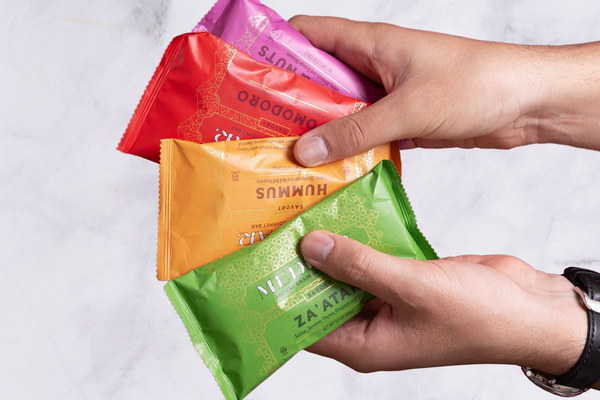Boost Your Qi and Blood A Comprehensive Guide for High Blood Pressure, High Cholesterol, High Blood Sugar, and High Triglycerides Patients
In today's fast-paced world, many individuals suffer from four highs - high blood pressure, high cholesterol, high blood sugar, and high triglycerides. These conditions can lead to serious health complications if not properly managed. One effective way to combat these issues is by focusing on improving your Qi (vital energy) and blood. In this article, we'll discuss the importance of Qi and blood in maintaining health and provide you with practical tips on how to boost them for individuals with four highs.
Understanding Qi and Blood:
In traditional Chinese medicine (TCM), Qi and blood are essential components of a person's health. Qi is the vital energy that flows through the body, regulating all physiological functions, while blood is responsible for nourishing the organs and tissues. When Qi and blood are abundant and flowing smoothly, the body remains healthy and resistant to diseases.
For individuals with four highs, maintaining optimal Qi and blood levels is crucial. Here's how you can achieve this:
1. Diet:

A balanced diet rich in essential nutrients can help improve your Qi and blood. Include the following in your daily meals:
a. Iron-rich foods: Iron is vital for the production of red blood cells, which carry oxygen throughout the body. Good sources of iron include red meat, poultry, fish, beans, lentils, and leafy greens.
b. Vitamin C: This vitamin enhances iron absorption. Citrus fruits, strawberries, bell peppers, and tomatoes are excellent sources of vitamin C.
c. Folic acid: Essential for red blood cell production, folic acid can be found in leafy greens, legumes, and fortified cereals.
d. Omega-3 fatty acids: These healthy fats help lower triglycerides and reduce inflammation. Fish, flaxseeds, chia seeds, and walnuts are great sources of omega-3 fatty acids.
e. Antioxidants: These compounds help protect your body against oxidative stress and inflammation. Berries, dark chocolate, green tea, and nuts are rich in antioxidants.
2. Exercise:
Regular physical activity promotes the flow of Qi and blood, strengthens the immune system, and helps maintain healthy cholesterol levels. Aim for at least 150 minutes of moderate aerobic exercise or 75 minutes of vigorous aerobic exercise each week. Additionally, incorporate strength training exercises into your routine to build muscle mass and boost metabolism.
3. Stress management:
Stress can negatively impact your Qi and blood levels, leading to an imbalance in your body. Practice stress-reducing techniques such as meditation, deep breathing exercises, yoga, or tai chi to keep your Qi and blood in check.
4. Herbs and supplements:
Certain herbs and supplements can help support your Qi and blood levels. Consult with a healthcare professional before starting any new supplement regimen. Some popular options include:
a. Astragalus: This herb boosts the immune system and improves energy levels.
b. Codonopsis: Known as a Qi tonic, codonopsis can increase energy and improve overall well-being.
c. Gynostemma: This herb helps regulate blood sugar levels and supports the immune system.
d. Ginseng: Available in various forms, ginseng is known for its energy-boosting properties and can help improve cognitive function.
e. Vitamin B12: This vitamin is crucial for red blood cell production and can be found in fortified cereals, fish, meat, and dairy products.
5. Regular check-ups:
Maintaining regular check-ups with your healthcare provider is essential for monitoring your four highs and adjusting treatment plans as needed. Keep track of your blood pressure, cholesterol, blood sugar, and triglyceride levels to ensure they remain within a healthy range.
In conclusion, improving your Qi and blood is a vital step towards managing four highs and maintaining overall health. By following these tips, you can enhance your energy levels, support your immune system, and reduce the risk of complications associated with high blood pressure, cholesterol, blood sugar, and triglycerides. Remember, it's essential to consult with a healthcare professional before making any significant changes to your diet, exercise routine, or supplement regimen.









